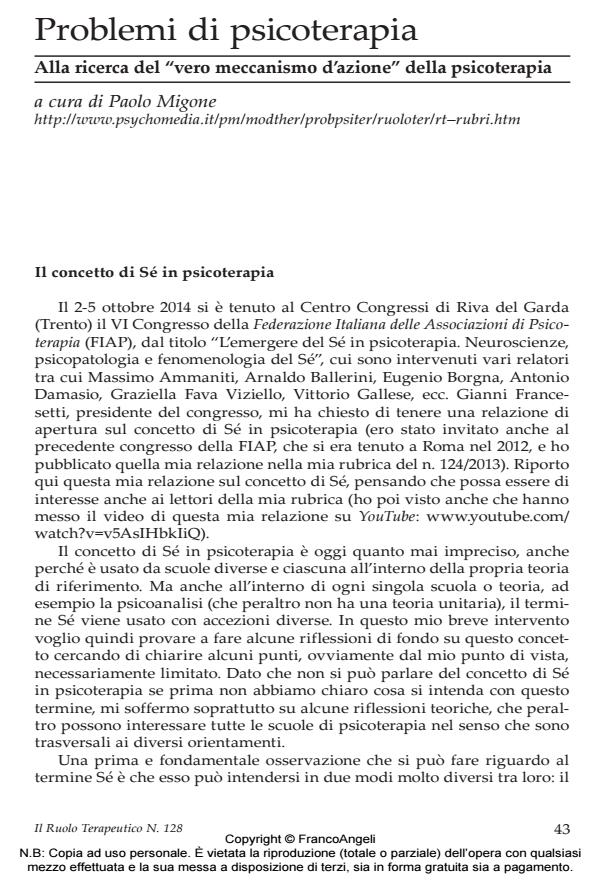The concept of self in psychotherapy
Journal title RUOLO TERAPEUTICO (IL)
Author/s Paolo Migone
Publishing Year 2015 Issue 2015/128
Language Italian Pages 8 P. 43-50 File size 225 KB
DOI 10.3280/RT2015-128005
DOI is like a bar code for intellectual property: to have more infomation
click here
Below, you can see the article first page
If you want to buy this article in PDF format, you can do it, following the instructions to buy download credits

FrancoAngeli is member of Publishers International Linking Association, Inc (PILA), a not-for-profit association which run the CrossRef service enabling links to and from online scholarly content.
The term self can be understood in two different ways: the first refers to a "thing", a structure with its own functions, or the mind, and in this case we use the third person; the second way, instead, refers to the subjective experience of oneself, the representation that a person has of his or herself (e.g., s/he may have a good self-esteem). In the newborn, since there is no self-awareness yet, we cannot talk of self as representation, but only of self as structure. Phenomenological or humanistic approaches, since they bypass the concept of unconscious, often use the term self as conscious representation, but in this way they underestimate the Freudian hypothesis that consciousness can be based on self-deceit (Freud used to say that «the ego is not master in its own house»). Finally, the differences between the self and the structures of id, ego and super-ego are discussed, and some hypotheses why in contemporary psychoanalysis the use of the term self has increased are made. [
Keywords: Self, Self as representation, Self as structure, neonatal Self, Self in psychoanalysis
Paolo Migone, Problemi di psicoterapia. Alla ricerca del "vero meccanismo d’azione" della psicoterapia in "RUOLO TERAPEUTICO (IL)" 128/2015, pp 43-50, DOI: 10.3280/RT2015-128005